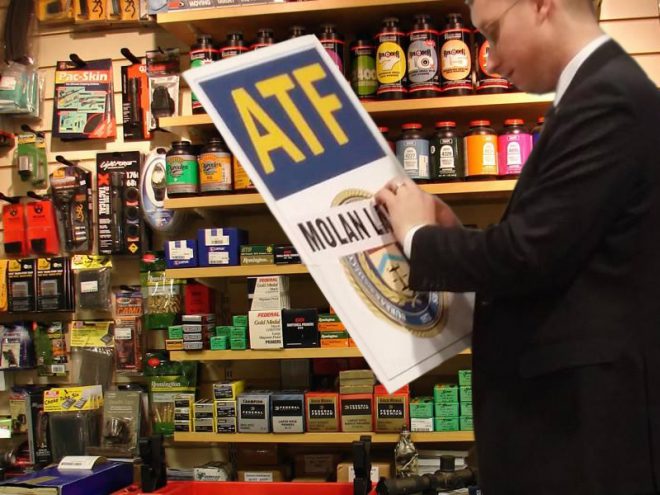Our friends at All Outdoor.com report that just recently the ATF sent out their monthly explosives industry newsletter detailing a new take on the legalities regarding transporting “wetted” nitrocellulose, a compound used in the production of smokeless powder, stating that wetting the nitrocellulose no longer made it a non-explosive and it would be subject to increased regulation.
What this means for the ammunition industry is largely unknown at this time. There is speculation as always that the price of ammunition will go through the roof, but without knowing more about the new ruling and what new hoops manufacturers will have to jump through any speculation is better received from a set of discount tarot cards.
Sadly if the speculators are correct about ammunition costs exploding (heh, pun intended) not only will the average purchaser of loaded ammunition be affected, but also the reloader who normally misses out on this sort of fun. Even the DOD will be hit pretty hard by the new ruling, after all, the ammunition plants that supply the military also supply a good majority of civilian shooters.
My educated guess is that this will not affect anything, the ATF would have to be out of their gourd to make such a sweeping change without notifying large ammunition manufacturers.
Below is the excerpt from the ATF newsletter detailing the new opinion:
ATF was recently asked about the status of nitrocellulose under the Federal explosives laws and regulations. “Nitrocellulose explosive” is on ATF’s List of Explosive Materials. ATF has determined that nitrocellulose containing greater than 12.6 percent nitrogen is a high explosive under 27 CFR, Part 555 (nitrocellulose containing 12.6 percent or less nitrogen is generally not an explosive material under Part 555). Therefore, it must be stored in a type 1 or type 2 magazine. We are aware that the U.S. Department of Transportation may assign a nonexplosive classification to nitrocellulose when it has been wetted with water or alcohol. This is based, in part, on the diminished likelihood of explosion in a transportation accident. Because the nitrocellulose retains its explosive characteristics when the water or alcohol is removed, the wetted nitrocellulose remains a nitrocellulose explosive, subject to the licensing, safety and security requirements of the Federal explosives regulations. However, based upon the diminished likelihood of wetted nitrocellulose exploding, ATF will consider variance requests to store the wetted material under an alternative arrangement.
Hat tip to our friends over at Ammoland and All Outdoor.com
 Your Privacy Choices
Your Privacy Choices
